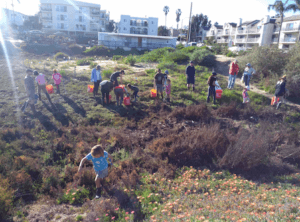Saving our Wetlands: A Climate Solution to Improve Community Health
How many times a day do you think about wetlands? Probably not too much. But I want to change that by writing this piece. You see, wetlands aren’t just vague, distant marshy, watery, grassy areas. They are vibrant ecosystems that not only host and support some of the richest interactions between animal life and the planet, but also store one of the less well known keys to solving the climate change crises and health challenges we face as a society. In other words, we need wetlands for our health and future!
Most people have heard that protecting rainforests is one of the best solutions to keep carbon dioxide levels down and moderate climate change. While this is true, wetlands are actually one of the best carbon sinks on the planet and can store three to five times more carbon per equivalent area than tropical forests. They also help keep our water, which has been affected by urban industrialization and pollution, clean.
All of this matters to our health. As climate change progresses we are seeing increasing rates of asthma, heat illness, cardiovascular disease, obesity, diabetes, and worsening mental health to name just a few impacts.
There is growing evidence that suggests exposure to “blue spaces” including coastal, river, lake and other freshwater ecosystems and “green spaces” have important mental and physical health benefits for humans. Wetlands uniquely provide both blue and green spaces, and protecting them and making them more accessible is one of the best investments for human health.
For example, asthma is becoming a growing epidemic among children. Children have a greater body to surface area which makes air pollution impact their lungs at a much higher rate than adults. With increasing pollution, including ozone in urban areas, we have seen a large increase in childhood asthma and hospitalizations. Natural green spaces including wetlands help clean the air which reduce the burden on children with underlying lung disease.
Getting out and being in nature has also been shown to help improve mental health. A Danish study looking at data from more than 900,000 residents born between 1985 and 2003 found that children who lived in neighborhoods with more green space had a reduced risk of many behavioral health disorders as adults, including depression, mood disorders, eating disorders and substance use disorders.
Numerous other studies have shown that just simply walking and being in nature boosts mood, improves cognitive function, and ability to perform better at tasks and in school. Another pilot study was performed by engaging people with wetland nature over a 6 week period. The study showed significant improvements in mental and emotional wellbeing, and reductions in anxiety, stress and social isolation.
Leading organizations in the US, including the CDC, American Heart Association, and the American Academy of Pediatrics recommend at least 1 hour a day of physical activity. This has become more problematic as green spaces have been overcome by urbanization which has especially affected children in lower socioeconomic areas. Rates of obesity and early onset childhood diabetes have markedly increased. In order to help offset this trend, green spaces including accessible wetlands, provide a safe environment to walk and get exercise which would help with curtailing this concerning trend.
Nature and health are inextricably linked. Accessible green and blue spaces including coastal wetlands have been vanishing due to poor coastal and urban planning over the years. We have a unique opportunity to help save these important areas for our kids and grandkids by highlighting and advocating for the important health benefits they serve.


Recently, San Diego Pediatricians For Clean Air (a group of pediatricians including myself) along with the local San Diego chapter of the American Academy of Pediatrics have teamed up with ReWild Mission Bay to lend our voices and urge action from our elected leaders to protect, restore, and ensure public recreational access to the last remaining natural coastal wetland area in Mission Bay. Both local pediatricians and family medicine doctors from large local hospital groups and academic medical centers are also teaming up to help push this movement forward as we see the urgent need to protect our native wetlands for the future health and well being of our community. As the city is nearing its final decision stages on the future of this wetland area, it is important that officials hear from locals in the community who want to support the ReWild efforts. You can join us. Please check out https://rewildmissionbay.org/ to get more information on how to get involved. And find similar actions in your community. We can all advocate for local climate solutions that improve health. I urge you to start today.
[…] Click here to read Dr. Ben Shleifer’s moving advocacy piece published on Eco-America’s Climate for Health Blog “Saving Our Wetlands: A Climate Solution to Improve Community Health.” https://climateforhealth.org/saving-our-wetlands-a-climate-solution-to-improve-community-health/ […]